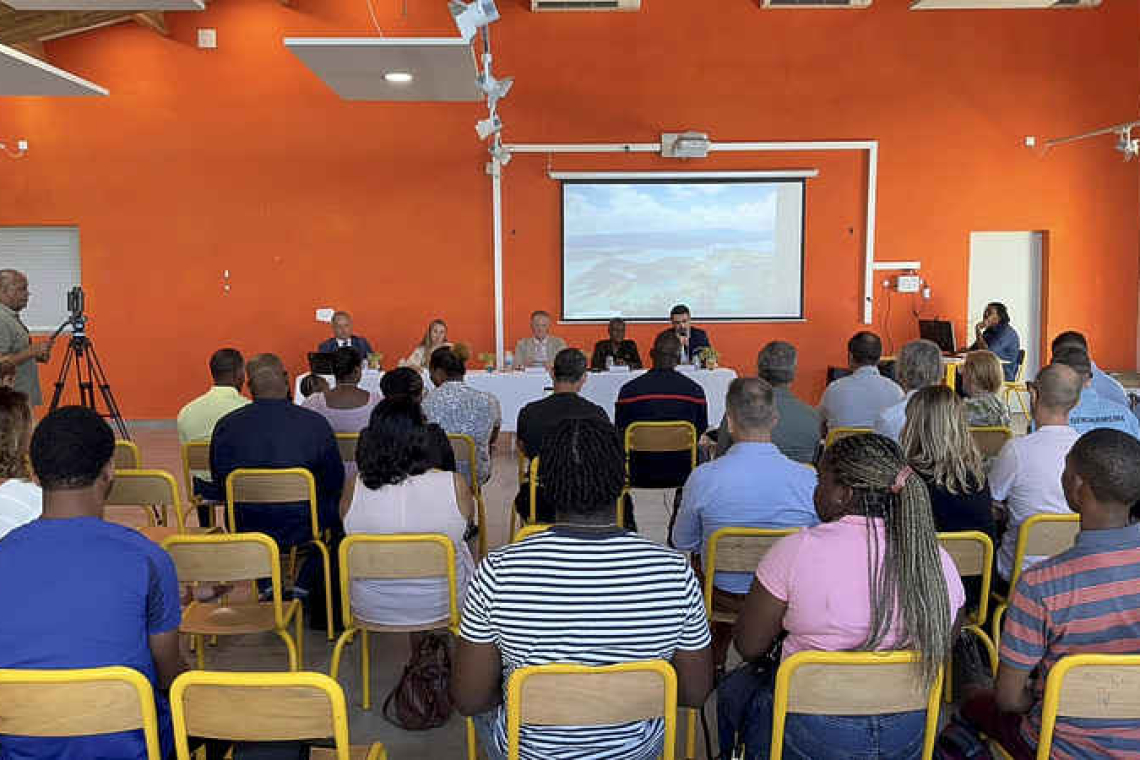The conference on youth violence in progress at Daniella Jeffry Lycée. (Collectivité photo)
MARIGOT--The first conference to find solutions to the wave of gun violence that blighted the French side at the beginning of January was held on Wednesday at Daniella Jeffry Lycée on the initiative of Préfet Vincent Berton.
The aim is to get to the root of the problem by bringing together public authorities and stakeholders in education, justice, health, economic and civil society, with the aim of working together to prevent youth crime.
The main speakers were Préfet Vincent Berton, Sous-Préfète Marie-Hildegarde Chauvau, Senator Annick Pétrus, Basse Terre Prosecutor Xavier Sicot and Vice Recteur for national education Harry Christophe.
An action plan will take shape from mid-February with the creation of multi-dimensional working groups and six key themes for finding concrete solutions. They will bring together about 10 people, each selected for their relevant view or expertise in the field of the treaty.
Each group will include a secretary (who will take notes on the exchanges) and a moderator (who will lead the debate). They will have to meet at least three times during the working period.
The first part of the plan will focus on the needs of young people by analysing the factors underlying violence and avoiding preconceived ideas.
This will be followed by an examination of the social and cultural environment, with the aim of gaining a better understanding of the external influences that shape behaviour.
The third focus will be on the relationship with authority, by re-examining school and legal authority and their role in the development of young people. This will involve thinking about a more constructive approach with schools and the police.
Another key point of the plan will be the professional integration of young people, to offer them alternatives to support them and prevent them from turning to violence. Well-being will also be at the heart of the discussions, with a focus on physical and mental health, as well as the crucial role of parents in preventing violence.
Finally, the working groups will focus on schools and the solutions that need to be put in place to ensure greater success at school, combat absenteeism and enhance educational pathways.
Three meetings are planned between now and the end of March 2025. This consultation phase will aim to emerge concrete areas for each working group, which will result in an action plan consisting of projects to be implemented in the period 2025-2027.
A charter will be signed at the end of the process, to set out the principles, the action plan and the procedures for evaluating actions. A revision date will be suggested at that time. The joint objective is to combat crime and violence through concrete actions among young people.







